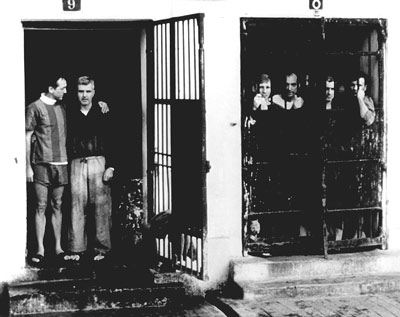The Vietnam War vet, spoke about his military experiences last week during a meeting of the National Association of Retired Federal Employees at the DoubleTree Hotel, where he also signed copies of his book for those who were interested.
Bill spent quite some time with Mike Christenson from Selma, Ala. at the prisoner of war camp. He recalled a time when Mike was caught with an American flag he had made from scratch, using all kinds of materials he had found while inside the camp. He and the rest of the Americans at the camp saluted the flag every Sunday morning, during the recitation of the Pledge of Allegiance. When they found the flag, the captors had Mike severely beaten. He didn’t complain too much. In fact, his answer was ” ‘It’s time for flag No. 2,'” Robinson recalled.
Robinson served as an Air Force helicopter crewman during the Vietnam War and his missions involved rescuing aviators from aircraft which had been shot down in action. During one operation, he was the one who got shot down and taken prisoner, together with his whole crew by the North Vietnamese Army, who kept him imprisoned for seven years. He was released from the “Hanoi Hilton” prison in Hanoi, North Vietnam in 1973.
Robinson singed up for the Air Force in 1961 and was first sent to Oklahoma and Korea, before heading for Vietnam, aged 21. Initially, he was told he would be going on a three-month temporary duty assignment, however, he did not return home for almost eight years. “We could see about 100 pairs of eyes looking at us through the jungle,” said Robinson, while recalling how him and his crew were captured and taken prisoners.
During the first night inside his 5 by 6 feet cell, through the darkness of the night, Robinson heard the voice of the senior prisoner of war in Hanoi Hilton prison: “Be prepared to die for your country,” said the prisoner, who insisted that if they were to survive, they must survive with honor, the Oak Ridger reports.
During his time in captivity, Robinson and his comrades were numerous times forced to write letters showing support for the anti-war movement. In order to stop the United States media from publishing the letters, they used fictional characters, instead of real pilot and gave them names such as Clark Kent.
He was freed and notified that he can return home on Jan. 26, 1973. Robison considers himself a very lucky guy, saying that only one in five aircrew members who were shot down in Vietnam survived to see their families again.
